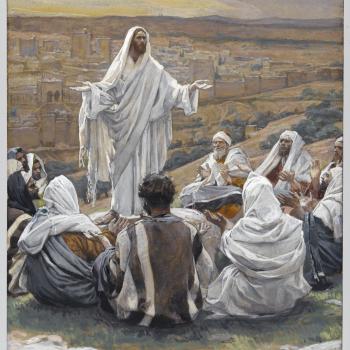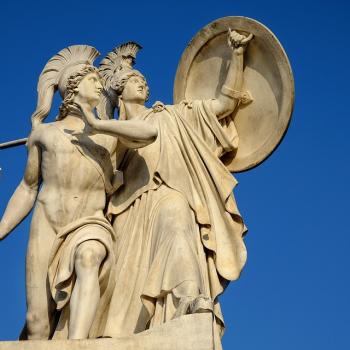 In the Anglican Ash Wednesday ritual, we pray for the grace of true repentance. Repentance means to turn around, which obviously means you’re going to be looking in a different direction, seeing something that was “behind your back” before. And what do we see when we repent?
In the Anglican Ash Wednesday ritual, we pray for the grace of true repentance. Repentance means to turn around, which obviously means you’re going to be looking in a different direction, seeing something that was “behind your back” before. And what do we see when we repent?
“Jesus Christ is the object of all things, the centre towards which all things tend. Whoever knows him knows the reason for everything” (f. 449).
When we repent, we see Jesus Christ. The problem with seeing him more clearly is that, as the prophet Isaiah wrote, our God is a hidden God. To see him clearly requires a great work of seeking, pursuit, discovery, and that is the work of Lent, the true grace of repentance. Pascal understood this work very well:
“If [Christianity] boasted that it had a clear sight of God and plain and manifest evidence of his existence, it would be an effective objection to say that there is nothing to be seen in the world which proves him so obviously. But since on the contrary it says that men are in darkness and remote from God, that he has hidden himself from their understanding, that this is the very name which he gives himself in Scripture: Deus absconditus [the hidden God; Is. 45.15]; and, in a word, if it strives equally to establish these two facts: that God has appointed visible signs in the Church so that he shall be recognized by those who genuinely seek him, and that he has none the less hidden them in such a way that he will only be perceived by those who seek him with all their heart, then what advantage can they derive when, unconcerned to seek the truth as they profess to be, they protest that nothing shows it to them?” (f. 427)
“Thus wishing to appear openly to those who seek him with all their heart and hidden from those who shun him with all their heart, God has qualified our knowledge of him by giving signs which can be seen by those who seek him and not by those who do not. There is enough light for those who desire only to see, and enough darkness for those of a contrary disposition” (f. 149).
An examination of our desires might help us understand where we are in the spiritual life and why. And if we honestly admit that we do not desire to see Jesus? We can, at least, desire the desire and thus make a beginning.
As the 13th-century saint, Richard of Chichester prayed, so do we:
O most merciful Redeemer, Friend, and Brother,
May I know thee more clearly,
Love thee more dearly,
And follow thee more nearly:
For ever and ever.
Amen.












